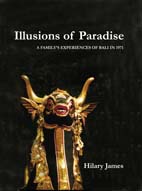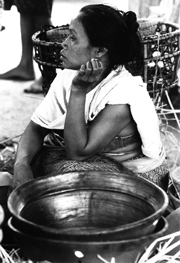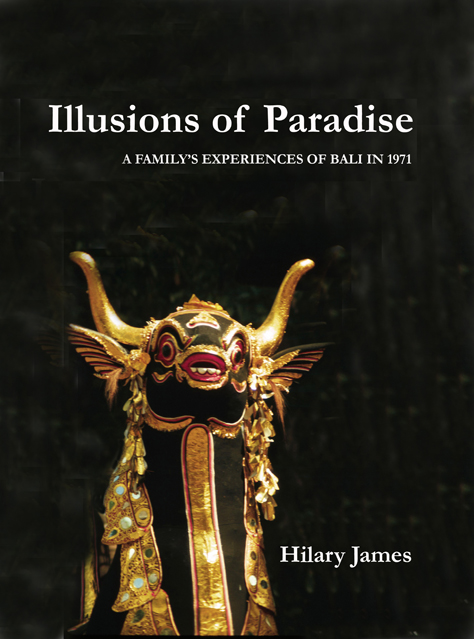 |
Illusions of ParadiseA family's experiences of Bali in 1971 |
|
Author: |
||
Publisheer: |
West Grinstead Publications, London, NY, Chartres and Sydney, 1990 |
|
ISBN: |
978-0-9757425-1-8 |
|
Format: |
Cloth bound, 250 mm x 190 mm |
|
Price: |
Aud$69.95 (+ P&H)
|
|
From the Author:
In 1971 Bali was unknown to most Australians and Ubud was a quiet country village thck with trees. There was little for visitors to buy and there was no electricity, no TV or radio. Live centred around daily work in the fields and religious festivals. Few spoke English.
We were one of the first western families to being our children and to live in a village compound. It was a safe familier world where they were safe to wander as they chose.
Our girls learned Balinese dance in the puri, we climbed an active volcano, taught at the university and discovered an ancient of ley lines.
This unique collection of 200 of Hilalry's contemporary black-and-white professional photographs show the beauty and simplicity of what has been lost. They deeply moved our Balinese friends when they saw them recently. John's 70 colour photos are of remarkable quality considering their age.
Hilary shows the illusion behind the glamour of modern tourism. This book is rich with local history and the personalities of the people who created the image that Bal was a paradise.
|
CHAPTERS:
|
SELECTED QUOTES:.......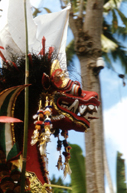 ......
......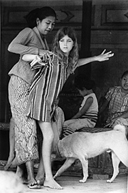
"One morning the children were talking in the next room. “Look at this dear little lobster,” Emily was saying.
“That’s too little to be a lobster,” from Becky, “But it does have pincers.”
“Mum, come and look at this queer insect,” one of them had called but I was absorbed and did not hear them.
“She’s not listening. I’ll show it to Dad.” Becky neatly closed her book on the tail of that interesting little insect and carried it out to the verandah. What made her carry it like that, so wisely and safely?
“What’s this, Dad?” She opened the book in front of him and tipped the scorpion onto the floor. As it landed its tail shot up erect. John grabbed a book and slammed it down and crushed it. His reactions were always quick. Then he told them how poisonous it was.
“Emily wanted to play with it.” Cassandra was matter-of-fact. Emily complained
“Well it looked just like a tiny lobster. Why did you squash it Daddy? What is a scorpion anyway?”
"Bali was no paradise in the past. Between 1850 and 1888 there were seven outbreaks of smallpox and five of cholera. Who would go there today if this was still so? In addition there were four mouse plagues that devastated the rice crops and an earthquake that killed over 15,000 and left the survivors bereft. That works out at about one significant disaster every three years.
War was another plague. Times were hard, principalities numerous and the rajas fiercely competitive. They had to be tough to maintain their rule and enlarge their territory wherever possible. In the eighteenth and nineteenth centuries they instigated wars with neighbouring kingdoms whenever possible in their jostle for power. Generous stretches of no-mans-land created boundaries between them."
"One day she cooked eels for our lunch. We had seen these small brown eels in the market threaded together through their heads in groups of six. We had heard that they were caught in the paddy-fields in bottle-shaped woven baskets which were sunk into the ground with tempting bait inside.
Emily, who was helping Raka cook that morning, had come over to tell us about them. “Get me a taste, will you?” John asked. Emily obligingly brought him a piece. It was dark and shrivelled and crisply dry with a strong flavour entirely its own. John liked its taste and texture but it reminded me too much of a thin brown snake. I kept quiet about this, not wanting to influence the girls but I need not have bothered as they had an even stronger reaction. At lunch none of them would taste it. It seemed Raka was wise in judging what she should serve us. We two ate them on our own and she did not offer them again."


